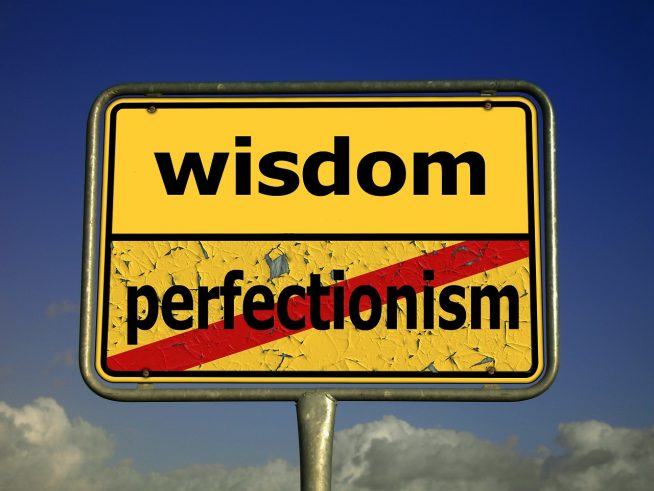Almost everyone pursues perfection — doing the best job you can, setting goals and working hard to reach them, maintaining high standards. But perfectionism isn’t about any of this. Perfectionism is a long, maddening drive down a never-ending road for flawlessness; it provides no rest stops for mistakes, personal limitations or the changing of minds.
Perfectionism can cause feelings of anxiety, fear, and self-doubt; it can cripple self-esteem, stifle creativity, and put a stumbling block in the way of intimate friendships and love relationships. Ultimately, it can create or aggravate illnesses such as eating disorders, manic-depressive mood disorder, obsessive-compulsive disorder and substance abuse.
Everybody has some “built-in” perfectionism, especially in our achievement-oriented, competitive culture. Complete this questionnaire to discover how perfectionistic you are.
- I never do anything halfway; it’s all or nothing for me. Every time.
- People who do things halfway make me angry or disgust me.
- I believe there’s a certain way to do things and they should always be done that way.
- I get angry or defensive when I make mistakes. I hate to make them.
- I often procrastinate on starting projects. I seldom meet deadlines. Or if I do, I kill myself meeting them.
- I feel humiliated when things aren’t perfect.
- I don’t like to admit not knowing how to do something or to being a beginner. If I can’t do something well, I won’t do it.
- People say I expect too much of myself. Or of them.
- In my family, you could never completely measure up to expectations.
- I’m hard on myself when I lose, even if it’s only a friendly game or contest.
- I often withdraw from others and from group activities.
- I don’t think work should be fun or pleasurable.
- Even when I accomplish something, I feel let down or empty.
- I criticize myself and others excessively.
- I like to be in control; if I can’t be in control then I won’t participate.
- I never like the way my body looks and feels.
- No matter how much I have done, there’s always more I could do.
- I don’t delegate often and when I do, I always double-check to make sure the job is done right. It never is.
- I believe it is possible to do something perfectly and if I keep at it, I can do it perfectly.
- Forgetting and forgiving is not something I do easily or well.
Check more than 5 in your quiz?
Then you may consider getting support from a coach or therapist to look at this topic more deeply.
There is a difference between excellence and perfection.
Striving to be good is excellence; trying to be flawless is perfectionism. @laurafenamore (Click to Tweet!)
I work with women who never feel like their bodies are “perfect” enough.
And I say, “there is no such thing as perfection”. Humans can have perfect moments. But being perfect all the time is impossible and certainly a recipe for failure.
I define perfection as imperfection.
I believe that our drive to be perfect in any area of our life is motivated by something beyond what we may think.
What do you believe? Please comment below.
If you’re concerned about your perfectionist behavior, don’t hesitate to connect with me.
Laura Fenamore, Body Image Expert, Coach and acclaimed Author is on a mission to help women around the world end the constant battle with their bodies and start adoring who they see in the mirror. Her approach walks students and readers through the heartfelt journey to self-love at any size or age by unlocking the secrets to a lifetime of emotional, physical and spiritual health. After overcoming a lifelong battle with addiction, obesity, and eating disorders, Laura released 100 pounds – keeping it off for more than 28 years. She chronicles this journey to self-love and health in her widely acclaimed book, Skinny, Fat, Perfect: Love Who You See in the Mirror. Learn more about Laura’s programs, or invite her to speak by visiting SkinnyFatPertect.com.
Image courtesy of geralt.












